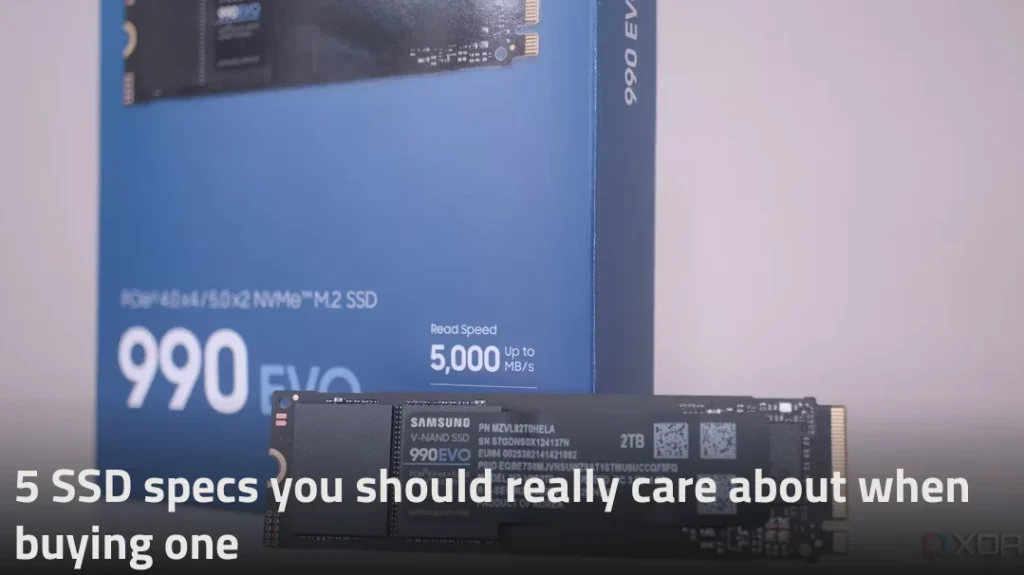The world has, more or less, moved on from hard drives. Everyone knows that an SSD is much faster than an HDD, and an NVMe SSD is faster than a SATA SSD. When buying a new SSD, most users are aware they need to look at the more obvious specifications such as the interface (SATA/NVMe), PCIe generation (Gen3, Gen4, Gen5), capacity, and the advertised read/write speeds.
The linked article unpacks the following concepts in a bit more detail:
- The endurance rating (TBW) of an SSD determines its lifespan; most SSDs with regular use can last for well over 5–6 years.
- The type of NAND flash (SLC, MLC, TLC, QLC) determines the cost, performance, and durability of your SSD.
- Having a high-end controller can improve performance manifold; DRAM can boost sustained write operations.
- The random read/write speeds of an SSD are more indicative of real-world performance in gaming and general desktop use.
So, before just going for the cheapest option per GB, it may be worth weighing up some of these other aspects as well.
See https://www.xda-developers.com/specs-to-care-about-when-buying-ssd/

